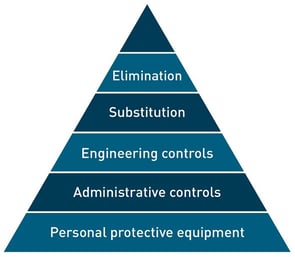
Author: Kevin Stewart
Oftentimes our differences can be a source of conflict and confusion, but in this article I’d like to explore how they can be harnessed to solve problems rather than create them.
“Everything will be fine if you’ll just do it my way.” At some point we have all probably said or thought something like this. Or maybe you’ve heard it from someone else (quite possibly your significant other). What is the underlying feeling or issue here? What we’re really saying is: “If everyone was just like me and thought the way I did, everything would be fine.” Of course, this is impossible. Neuroscience research tells us that no two brains are exactly alike, and to quote an article from Scientific American on this topic, “…if the apparatus that senses the world differs between two individuals, then the conscious experience of the brains wired to these sensors cannot be the same either.”[1]
Good problem solvers need to be aware of this so they don’t fall into the trap of assuming that everyone knows what everyone else knows, or that everyone interprets information in the same way. I was channel surfing one day and spotted an interesting show about conjoined twins who share one body and most organs, but have completely separate heads (and therefore brains). When the interviewer posed a question, each twin responded in turn with different answers. This caused an ensuing disagreement between them.
These two people had as identical an upbringing and exposure to life and environmental factors as is humanly possible and yet they still thought differently. If that doesn’t convince you that it’s impossible for two different brains to share the same perspective, I’m not sure what will!
Here’s an example of how two people can be having a conversation about the same thing and yet not be talking about the same thing at all. During a common exercise in one of my classes, a rousing discussion started about cleaning fish. Everyone except one bright student seemed to be on the same page. Everyone else got the feeling that this person was just being difficult, but something inside reminded me to get more information. After a few probing questions we discovered that we did not have the same perspective on the issue. This person had never been fishing and did not understand that “cleaning fish” implied gutting and preparing it for consumption. She couldn’t understand the exercise because her perspective of cleaning was to wash and in general clean the outside, so what did a knife have to do with it!
One more personal observation to cement this issue is a discussion I had with colleagues about the “Hierarchy of Controls” (pictured below for reference).
 One colleague stated that another must understand this concept since he has an engineering background, and all engineers would know this. I had to inform them that I also have a 30-year background in engineering, maintenance, and reliability but actually had never been exposed to the term either. So once again, the impossible situation of everyone’s perspective being identical rears its head.
One colleague stated that another must understand this concept since he has an engineering background, and all engineers would know this. I had to inform them that I also have a 30-year background in engineering, maintenance, and reliability but actually had never been exposed to the term either. So once again, the impossible situation of everyone’s perspective being identical rears its head.
While doing your root cause analysis, keep the perspective issue in mind. Ensure that you formulate the problem definition so that each perspective has a chance to be heard, and that the problem is a reflection of all of the perspectives of the team. While doing the root cause analysis, some may not speak up in the meeting but will have a different perspective, so as a facilitator it is your job to draw it out and ensure it gets voiced.
In my experience it can have a significant impact on a team’s understanding of a particular cause. Though sometimes we might wish everyone saw things exactly as we do, allowing for others’ alternate realities is actually key to building a more complete picture of your problem, thereby allowing you to find the best solution.
[1] http://www.scientificamerican.com/article/think-different-jan-11/


